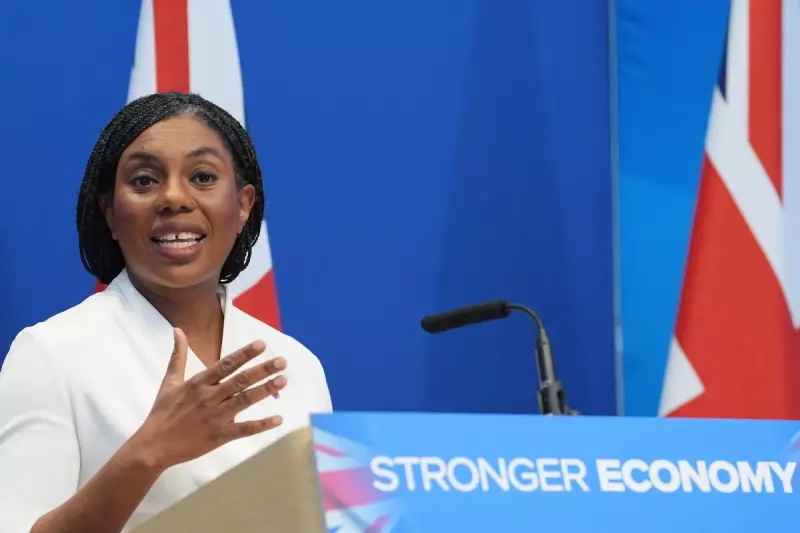
In a dramatic parliamentary showdown that exposed deepening divisions over Britain's economic direction, Shadow Chancellor Rachel Reeves has launched a scathing attack on Business Secretary Kemi Badenoch, accusing her of deploying a "waffle bomb" to obscure the government's tax policy failures.
The heated exchange erupted during Treasury questions, where Reeves challenged the Conservative minister over what she described as "complete confusion" surrounding the government's approach to future tax increases. The confrontation highlights the growing political battle over economic competence as the next general election approaches.
The Parliamentary Confrontation
Reeves didn't mince words when she confronted Badenoch, stating: "The Business Secretary used a waffle bomb to try and disguise the complete confusion at the heart of this government about their plans for tax rises." The term "waffle bomb" immediately captured attention in Westminster, suggesting a strategy of overwhelming with vague rhetoric rather than substantive policy details.
The Business Secretary found herself in the hot seat after recent comments by Treasury minister Bim Afolami appeared to contradict Chancellor Jeremy Hunt's position on potential tax reductions. Afolami had suggested the government couldn't "wave a magic wand" to cut taxes, despite Hunt's previous hints about forthcoming reductions.
Broken Promises and Economic Uncertainty
Reeves seized on this apparent contradiction, reminding MPs of the government's track record: "This is the same government that promised no increases in national insurance, and then increased it. The same government that put up corporation tax and the same government that has given us the highest tax burden in 70 years."
The Shadow Chancellor's attack underscores Labour's strategy to position themselves as the party of fiscal responsibility, while painting the Conservatives as inconsistent and unreliable on economic matters. With families across Britain feeling the pinch from the cost of living crisis, tax policy has become a central battleground in British politics.
Government's Defence and Counterattack
In response, Badenoch defended the government's record, pointing to recent economic developments: "We have been able to cut taxes because of the difficult decisions that we have taken." She specifically highlighted the reduction of national insurance from 12% to 8% as evidence of the government's commitment to putting money back into workers' pockets.
The Business Secretary also turned the tables on Labour, questioning their own tax proposals and suggesting they lacked a coherent economic plan. This back-and-forth reflects the broader political narrative both parties are trying to establish heading into what promises to be a fiercely contested election campaign.
What This Means for British Businesses and Families
The exchange reveals more than just political point-scoring—it exposes fundamental questions about Britain's economic future. With the tax burden at historic highs and public services under strain, voters are looking for clarity on how either party would manage the nation's finances.
Business leaders have expressed concern about the uncertainty, calling for stable and predictable tax policies to support investment and growth. The "waffle bomb" accusation suggests that, for now at least, such clarity remains elusive as both major parties position themselves for the economic debates to come.






